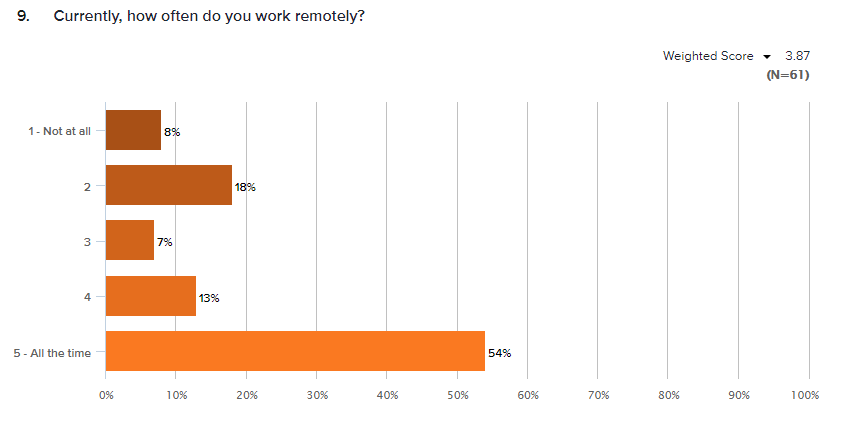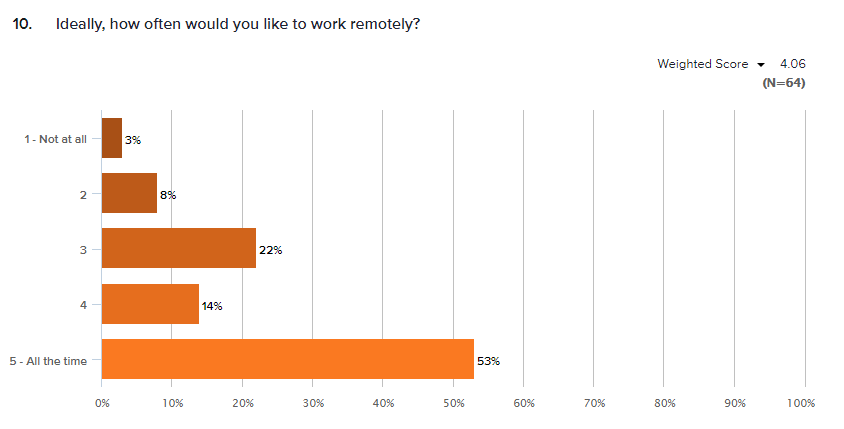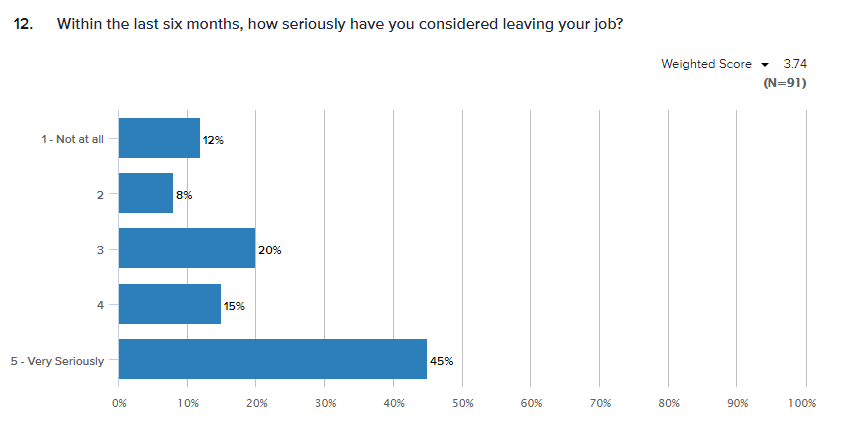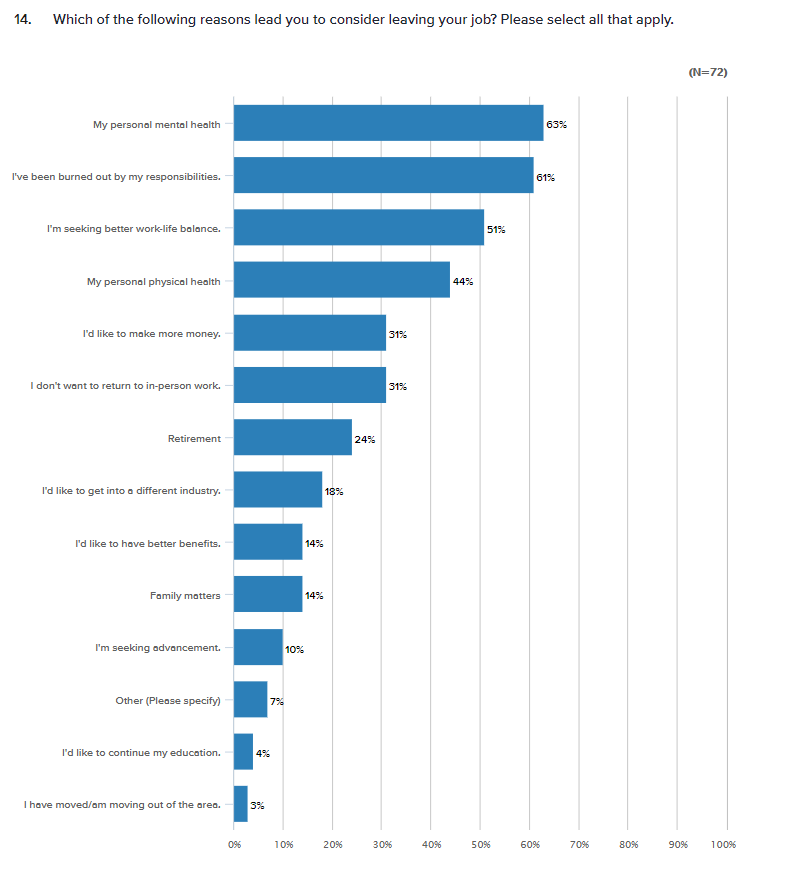In the first blog about this study, we reviewed the participants’ employment status, employment length, and their work from home status and future desire for working from home. In the second blog covering the data from this study, we dove into employees’ feelings about leaving their current job: Do they want to leave? If so, why? If not, why not? To serve as a quick reminder, here are some of the biggest highlights of this study:
-
- 54 percent of the participants have been working remotely, and 53 percent of participants want to work remotely all the time.


-
- 45 percent of participants have said that they are seriously considering leaving their job.

-
- People want to leave their jobs for a few main reasons: mental health, physical health, and work-life balance.

So, the data is in: more than half of the participants want remote work to stay and a little less than half are seriously considering leaving their job. Along with that, many workers want to leave primarily because of the toll on their mental and physical health and trying to achieve a better work-life balance.
Limitations of the study
There were a few limitations in this study that are important to mention. The first limitation was the number of participants (107 total participants). Since this sample size is smaller than other studies about this subject, the results should be taken with a grain of salt. This limitation was especially apparent when it came to the tenure of the participants at their current job. Some 44 percent of the participants had been at their job for 10-plus years, meaning that results of the study were significantly impacted by members of this group — which may not necessarily represent 44 percent of the general population.
Another limitation of this study is that it was shared through Facebook advertising for only a couple of days. Although this was a great way to connect with a wide range of participants, future studies may expand the audience.
Why you should care
When looking at this study, limitations included, why should anyone care about these results? Notably, the pandemic has unsurprisingly affected many employees’ physical and mental health. Along with that, work-life balance has been thrown into flux because of the COVID-19 pandemic.
While it’s not an employer’s job to provide happiness to their employees, employee experience clearly needs to have a greater focus during these uncertain times.
This pandemic still carries a lot of uncertainty and employers need to understand how their employees are feeling. Companies need to be on the lookout to make sure that employees are not burning out, and are maintaining a good work-life balance. If you are an employer and reading this, ask your employees what you can do to help them reduce burnout and maintain a healthy work-life balance. If you are an employee, speak up if something isn’t working for you, whether that’s through an anonymous survey or a private conversation with your manager. Let your employer know that improvements need to be made.














